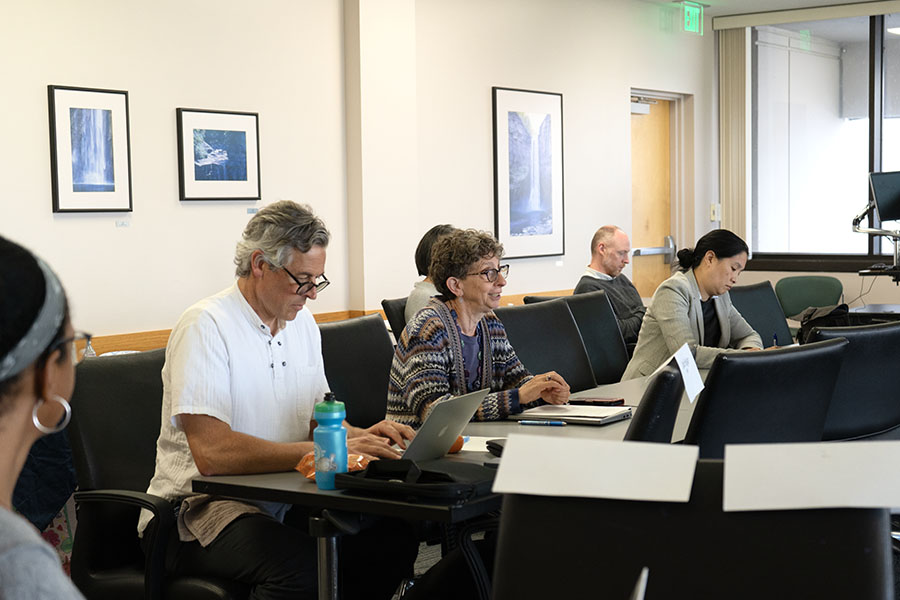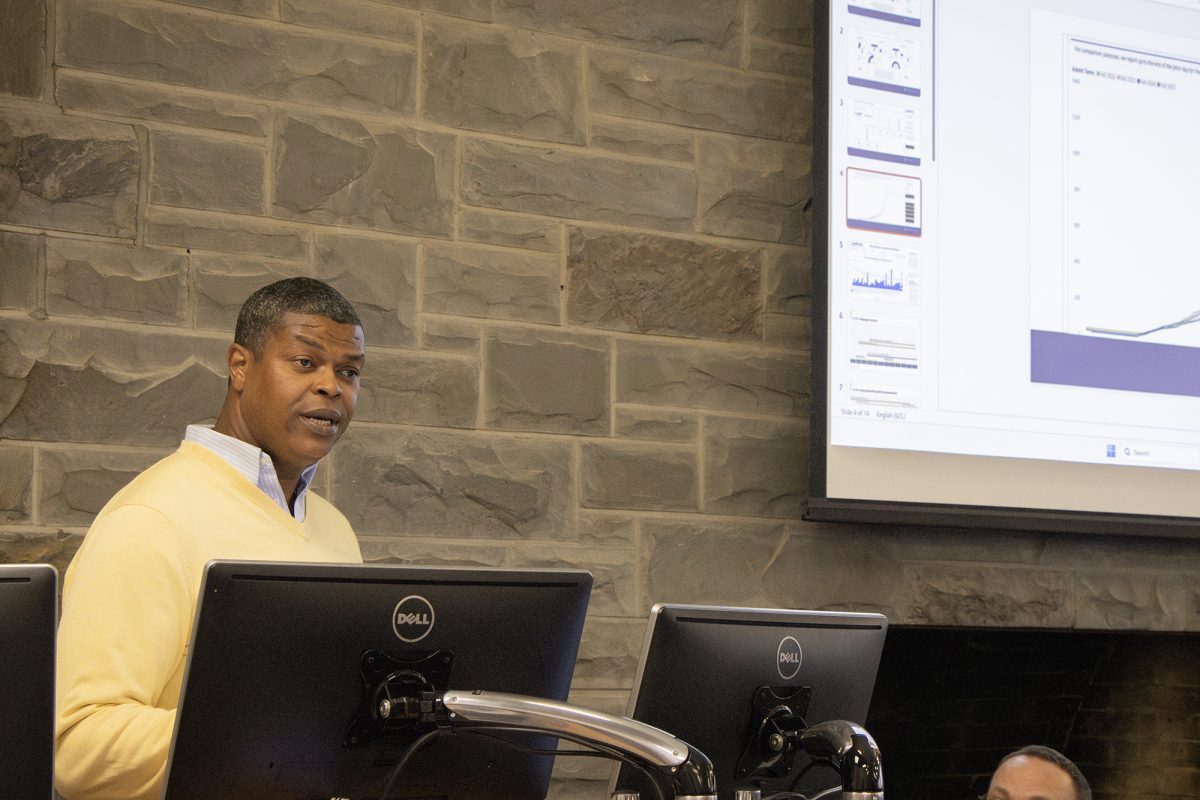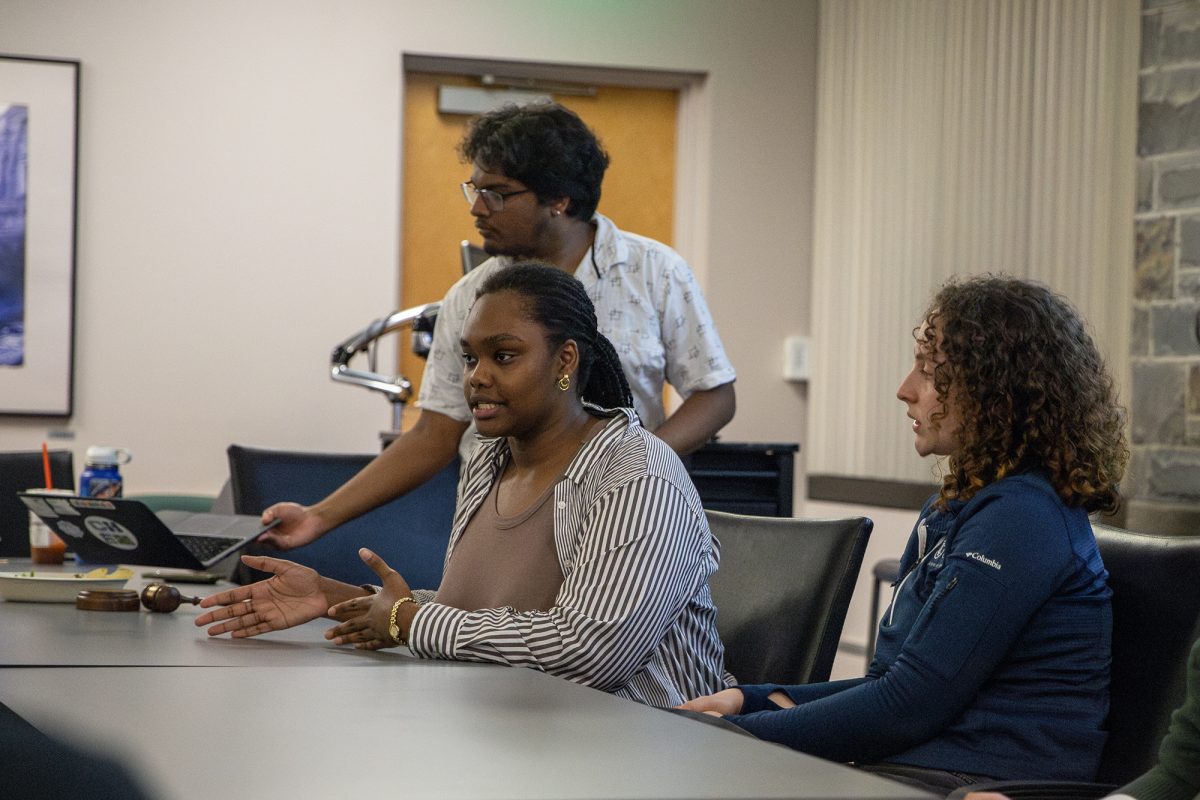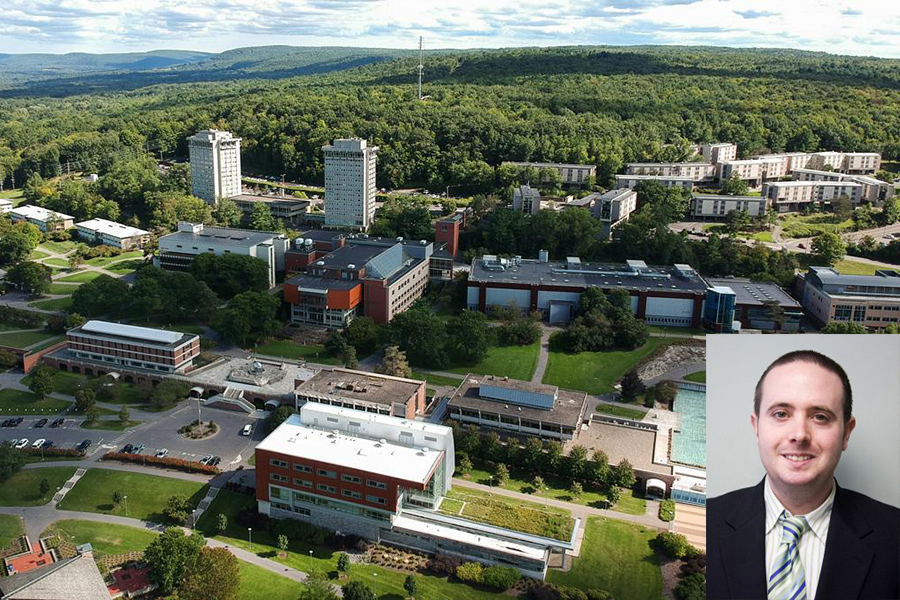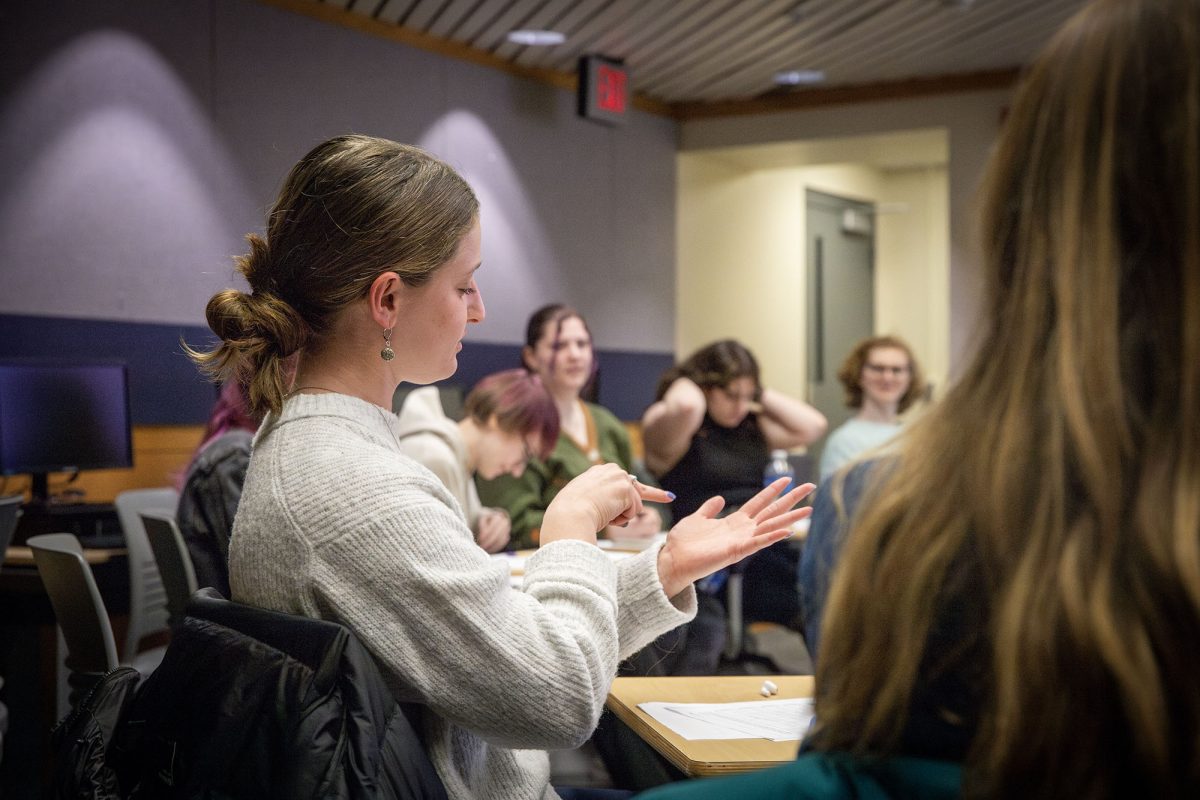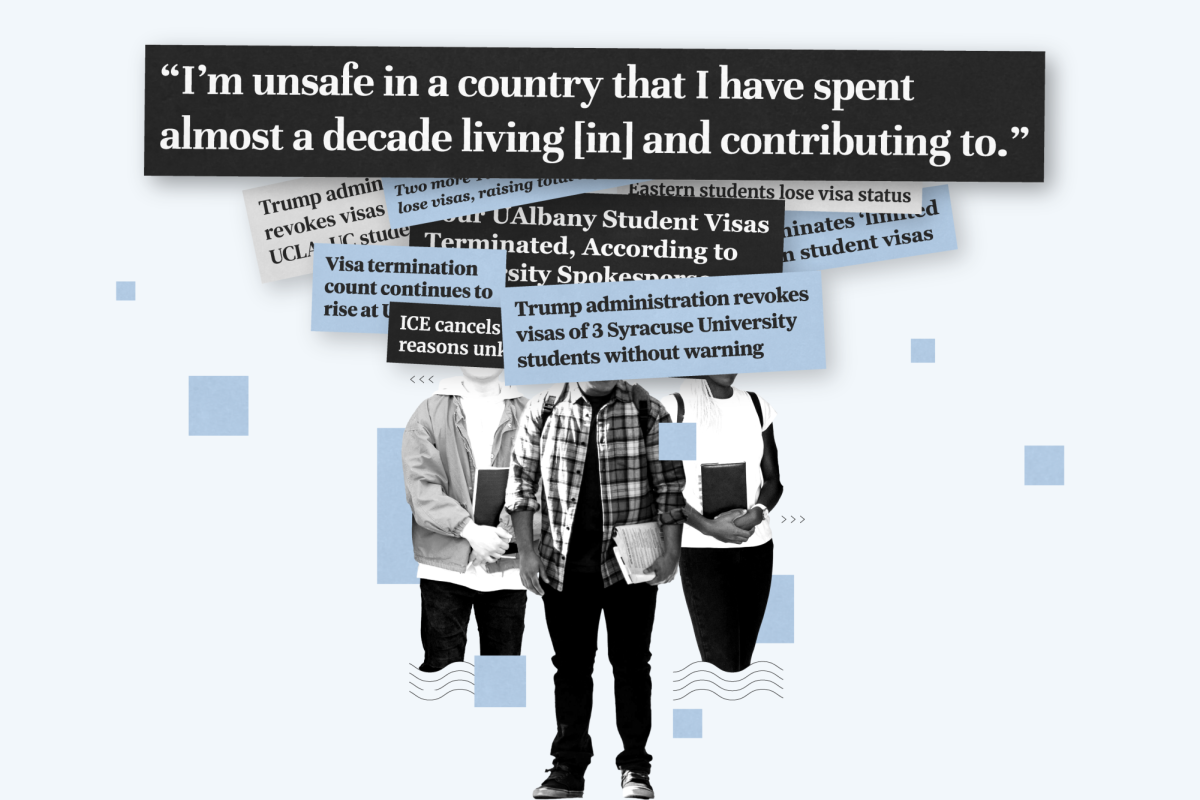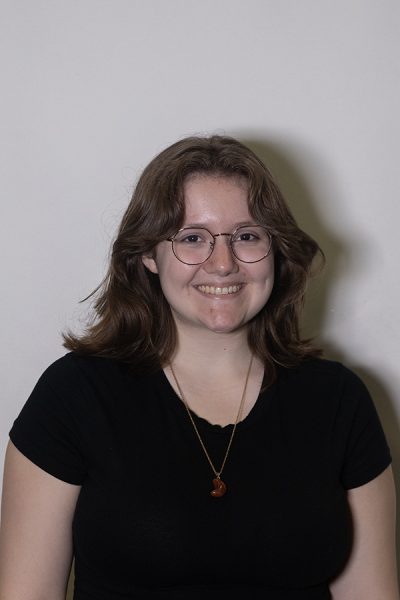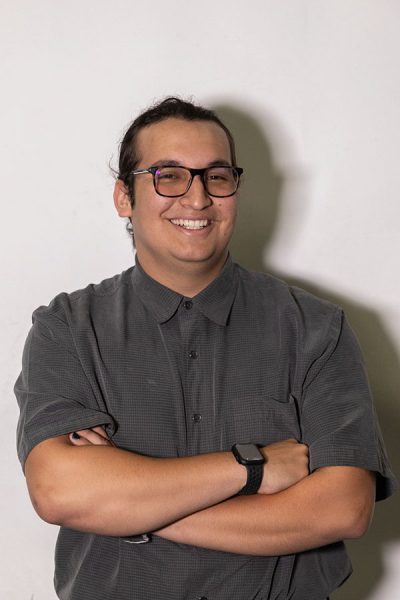The Ithaca College Faculty Council met Sept. 3 for its first meeting of Fall 2024 to discuss the rules of order, hear about the ongoing reaccreditation process and voice concerns to be addressed during later meetings.
The meeting opened with a welcome from President La Jerne Cornish, who thanked faculty for attending the convocation ceremony Aug. 28 and discussed her plans to travel to places like Washington, D.C., Boston, Los Angeles, Dallas and San Antonio to meet with donors and alumni throughout the semester.
“[I’m] meeting with alumni, telling them all the great things that are happening on this campus, listening to the things that matter to them and hoping that some of the things that matter to us matter to them as well,” Cornish said.
David Gondek, chair of the council and associate professor in the Department of Biology, presented the council’s rules of order, which are based on “The Four Agreements: A Practical Guide to Personal Freedom,” a self-help book by author Miguel Ruiz. The four agreements are: be impeccable with your word, don’t take anything personally, don’t make assumptions and always do your best.
Gondek called for members to nominate themselves for the position of council parliamentarian. Gondek said the parliamentarian’s main role would be to help guide him during meetings and keep the council members on track. Music librarian Kristina Shanton, who held the position during the 2023–24 academic year, agreed to hold the position this academic year as well.
Gondek also called for a member to work with the academic calendar committee to improve its lines of communication, a role that was requested by the Office of the Registrar. Bonnie Riley, assistant professor in the Department of Occupational Therapy, volunteered to fill the position.
The council then heard from Melanie Stein, provost and senior vice president for academic affairs. Stein reminded the council about the changes to the 2025–26 academic calendar, which aligns typical breaks with Yom Kippur and Eid al–Fitr. Stein also said the Office of the Provost worked over the summer to adjust the faculty pay schedule, which will align the faculty pay cycle with the fiscal year calendar for tenured faculty, tenure-eligible faculty and multi-year renewable notice faculty.
“There’s no change to job expectations and no change to actual pay,” Stein said. “So nothing of fundamental interest.”
Stein said the Office of the Provost is preparing an FAQ document with answers to present at the upcoming all-faculty meeting. As of Sept. 3, the date of the meeting is undetermined.
The council then heard from Te-Wen Lo, co-chair of the Middle States Self Study and Executive Team and associate professor in the Department of Biology, who shared updates on the college’s ongoing reaccreditation process. The reaccreditation process takes place every eight years with an end goal of submitting a self-study report to the Middle States Commission on higher education, a global institutional accreditor, which will evaluate the report and determine if the college has met the criteria for reaccreditation.
“This is a three-year process and we’re entering year two,” Lo said. “For the first year, we spent a lot of time preparing and designing ourselves. … And we spent this past summer … collecting all sorts of evidence that will … convince or demonstrate to the Middle States that we have met our criteria for reaccreditation.”
Lo also said that members of their team may be reaching out to individual faculty members for particular evidence or data to strengthen their report and asked faculty members not to ignore emails that are sent out to request data.
Gondek then invited council members to share concerns that they may have overheard in their respective schools to address at later meetings.
“The idea isn’t to have answers now, but [that] you’re bringing things forward, and then we will … [decide] if that has an agenda in the future, we’ll talk to the provost, [we’ll] talk to others and figure out what needs to happen to address those questions,” Gondek said.
Cynthia Henderson, professor and chair of the Department of Theatre and Dance Performance, brought up the college’s policy for COVID-19. Henderson said her students are confused about what to do if they contract COVID-19.
“Should they do what the CDC recommends?” Henderson said. “Should they just show up in a mask, but then risk causing contagion in the classroom? What do they do now that the national COVID crisis has slowed down?”
Gondek said the council would reach out to the Office of Public Safety and Emergency Management to see if they can send out a message clarifying what students should do if they contract COVID-19.
The use of artificial intelligence in classrooms was also brought up by multiple faculty members, including Riley, who mentioned students’ concerns about equity.
“On the student side, is there [an AI program] that everybody can have the same access to begin to … use in classes?” Riley said.
Belisa González, dean of faculty equity, inclusion, and belonging and co-chair of the Campus Climate Committee, ended the meeting by reminding faculty to attend the upcoming faculty follow-up session for the Campus Climate Survey.
“[We’re] giving people another opportunity to tell us if there are any findings that you find particularly interesting or important that you want to highlight or give some insight onto,” González said. “The leadership of the Center for Equity, Inclusion, and Belonging … spent the summer delving more deeply into the results [of the survey] and thinking about action steps.”


